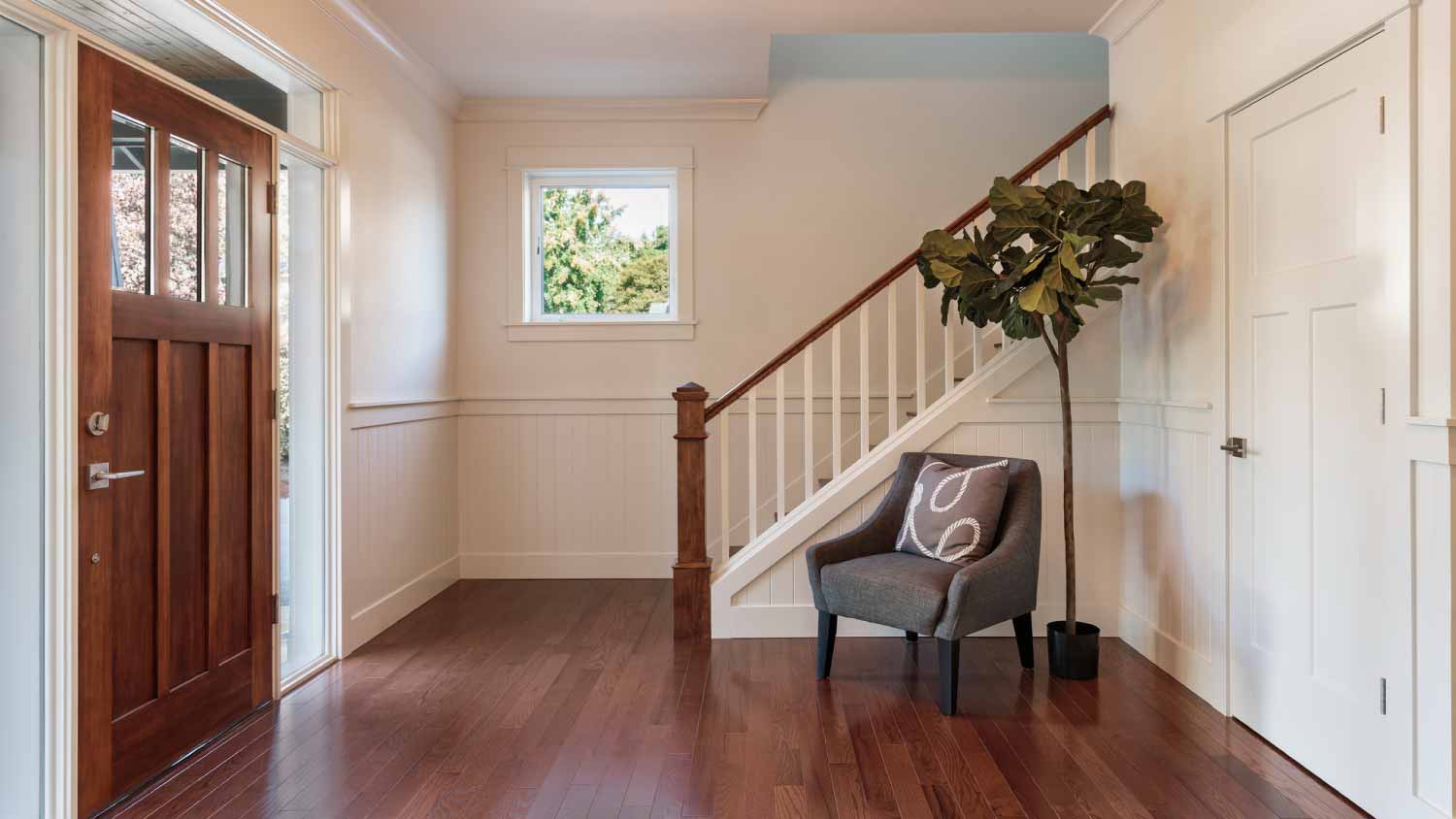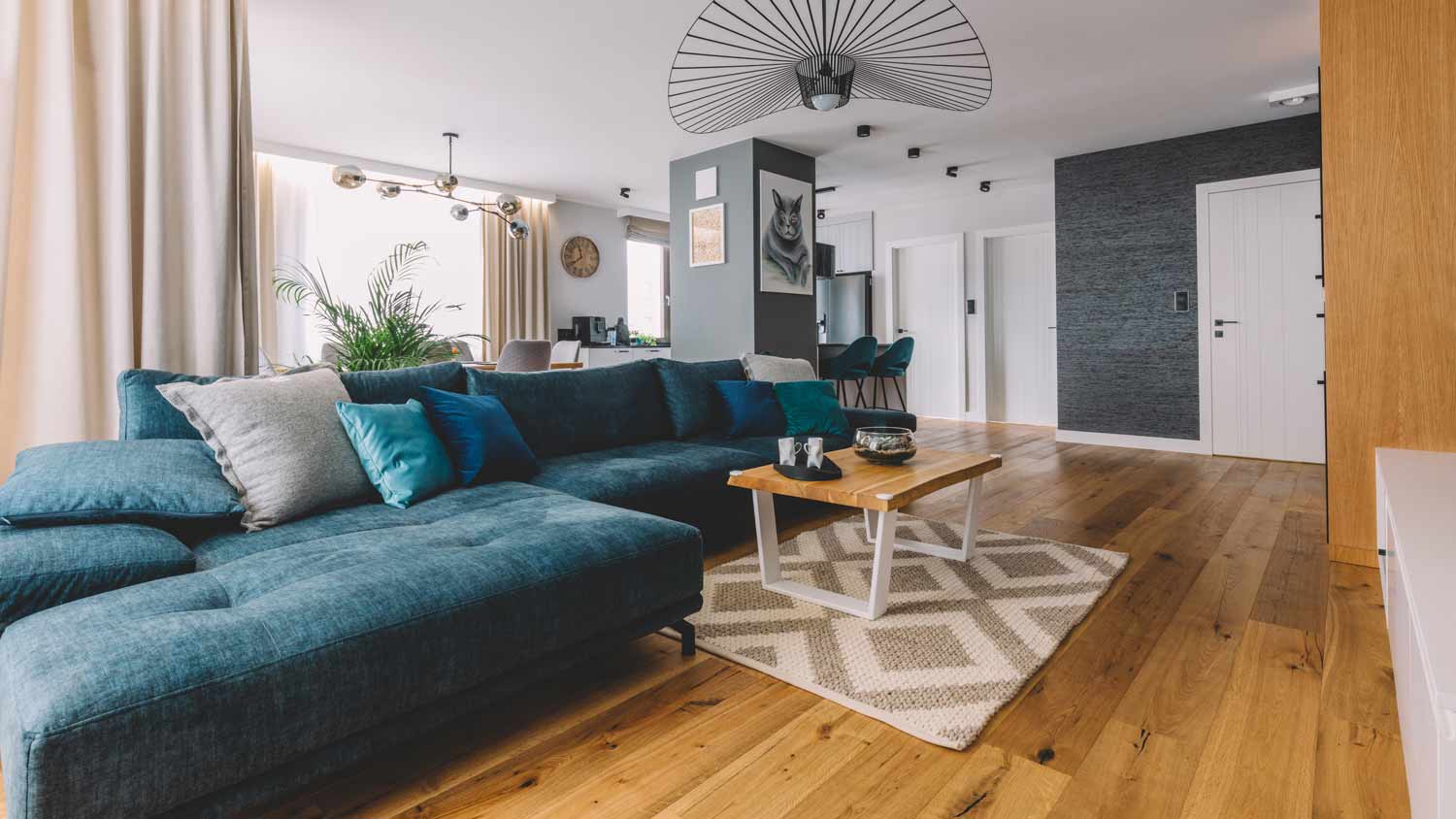5 Alternative Flooring Options for Your Basement
If you're looking for an alternative to the usual basement surfaces, you have a variety of great options


When it comes to refinishing your basement, there’s no need to feel limited. While flooring surfaces like wall-to-wall carpeting or vinyl have long been common in basements, modern innovations in flooring have led to a whole array of viable design options.
Basements require some unique considerations compared to other rooms in the home because of their typically humid environment and the different subflooring considerations you’ll be making. In this list, we’ve laid out the advantages of some of our favorite alternative basement flooring options so you can find the perfect fit for your project needs and budget.
Start With Your Subflooring
When planning your basement remodeling project, one of the most important considerations is one that you don’t even see most of the time. Your subflooring is the solid surface beneath your finished floors, and it affects the types of floors you’ll be able to safely install in your basement.
Most basements have a floor made of flat, solid poured concrete. This surface is durable, but it’s not the most comfortable or attractive option for a finished floor, nor is it as easy to keep clean. However, before you can install a better flooring surface on top of your concrete, you’ll need to address any problems with the concrete itself.
Take note of any rough or uneven areas, wide cracks, or sections that have shifted up or down. Additionally, if water tends to come into your basement during inclement weather, this indicates damage that you should repair before installing new floors. Problems with your home’s foundation are best addressed by a local home foundation repair pro.
Finished Basement Flooring Options
1. Engineered Wood Flooring

Looking for a basement floor that provides the high-end look of real wood? While solid hardwood planks are not suited to a moisture-prone basement environment, engineered wood planks are more structurally sound thanks to a construction that’s similar to plywood. These planks consist of a thin layer of real wood layered over wood plies or composite boards.
If you want to achieve a consistent look throughout your home, engineered hardwood is a flooring style that works in living spaces on all levels. Design a basement den or entertainment area by pairing engineered wood floors with an area rug. These floors are also great for people with allergies since dust and dirt can be swept up easily during maintenance.
Engineered wood can be made from a wide variety of wood species and is often manufactured in planks with interlocking edges that click together for easy installation. Most engineered wood planks are less than half-inch thick and cost between $4 to $7 per square foot. While you can install them directly over concrete, it’s typically better to add an underlayment beneath them.
2. Other Floating Floors
This category refers to several different types of flooring, including carpet tiles, laminates, engineered wood, and luxury vinyl tile and planks. They’re a great choice for basements with a lot of moisture creeping up from below. Most of these look either like different wood species or ceramic tile.
These floors offer a lot of versatility. Carpet tiles are great for a casual game room or hangout space. Resilient vinyl or laminate surfaces are well-suited to a home gym where extra cushion and dent resistance are needed. Whatever type of basement you’re designing, there’s a floating floor for your needs.
Floating floors are any product that can be laid directly over a subfloor without adhesives or nails. Installation usually consists of snapping together planks or tiles with interlocking joints. This simple installation is ideal for DIY home renovators or those looking for a quick turnaround. You can add a moisture barrier between the floors and subfloors for stronger protection.
At $2 to $7 per square foot, floating floors are an excellent value available in various styles. Not only that, but any time a tile or plank is damaged, you can replace it individually rather than having to repair the entire floor.
3. Bamboo Flooring
Another solid wood alternative, bamboo, is actually a type of grass that will not expand and contract in high-humidity environments like wood tends to do. Natural water resistance grants bamboo a level of structural integrity that’s perfect for below-grade installations. These installations typically involve gluing planks down to a concrete subfloor.
Designing a basement with a home bar to host friends? Bamboo provides the impressive, refined look of natural hardwood with added moisture resistance to prevent damage and make cleanup easy.
Bamboo also has the appeal of being an environmentally friendly flooring option. It’s a sustainable crop that grows quickly and requires no chemicals or disruptive replanting techniques. You’ll find products that average between $3.80 to $5 per square foot.
4. Cork Flooring

Cork, like bamboo, is an earth-friendly choice that biodegrades completely and can be harvested without chopping down any trees. Made from the bark of the cork oak, cork is usually applied as a veneer to a high-density fiberboard that clicks and locks together much like many other solid wood alternatives.
Cork is a warm, comfortable surface underfoot that’s ideal if you’re renovating your basement to include a playroom or workspace. Soft by nature, it’s great if you’re standing for long periods or if children are crawling around. You’ll find most cork products at between $5 to $14 per square foot.
5. Epoxy-Sealed Concrete
Looking for a low-maintenance floor that’s inexpensive and quick to install? Epoxy sealant turns your concrete into a waterproof, bacteria-resistant surface that’s great for workrooms and home gyms. Cleaning is as simple as an occasional wet mopping, and the sealant will protect your concrete from cracks or stains.
Epoxy is applied to your concrete subfloor in a smooth, thick layer that goes on like paint. By adding plastic flakes or fine sand to the surface right after installation, you’re able to create a huge variety of color and pattern options for a completely custom look. If you decide to refinish your floors in the future, other types of flooring can be floating over your epoxy-sealed concrete.
You’ll find some DIY kits available for as little as $3 to $7 per square foot, but you’ll get the best results from working with a local professional epoxy floor contractor.

.jpg?impolicy=leadImage)



- 6 Types of Flooring Perfect for Basements and Bathrooms
- 11 Types of Flooring to Consider for Your Home
- 15 Great Options for Budget-Friendly Kitchen Floors
- What’s the Best Flooring for Kitchens? Explore 10 Top Picks
- The Complete Glossary of Flooring Terms You Need to Know
- 5 Things You Should Know Before Selecting Hardwood Floors
- 4 Wood Floors Perfect for Your Kitchen
- 6 Inexpensive Flooring Options That Look Good and Save You Money
- What Is the Best Tile for Bathroom Floors?
- 8 Types of Hardwood Floors That Are Perfect for Your Living Space















